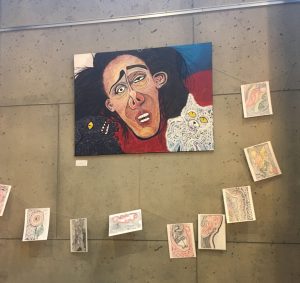Last week’s Rose Cafe deviated from the normal set of topics we usually have. Instead, the conversation revolved around the difficult subject of torture. We had the privilege of having Dr. Nick Chessman and Pornpen Khongkachonkiet lead the discussion on the subject matter, specifically focused on their work in Southeast Asia. The combination of the two speakers, Pornpen a human rights activist and Nick a scholar, helped to provide two important perspectives. Pornpen spoke from that of a local who is on the front lines talking to those directly affected by the use of torture by the government of Thailand, while Nick spoke on how his own research in Myanmar has influenced his work on torture.
The main question that was asked by the Rose Scholars and one that the speakers kept coming back to during the talk was whether or not torture “works”. Pornpen’s response to this question really struck me the most: Is stripping the dignity and humanity of another person worth obtaining an piece of information? This question really made me reflect on what countries that utilize torture mechanism really value. This topic was a gruesome one to cover, but I am grateful that our speakers were willing to share their experiences with us.

